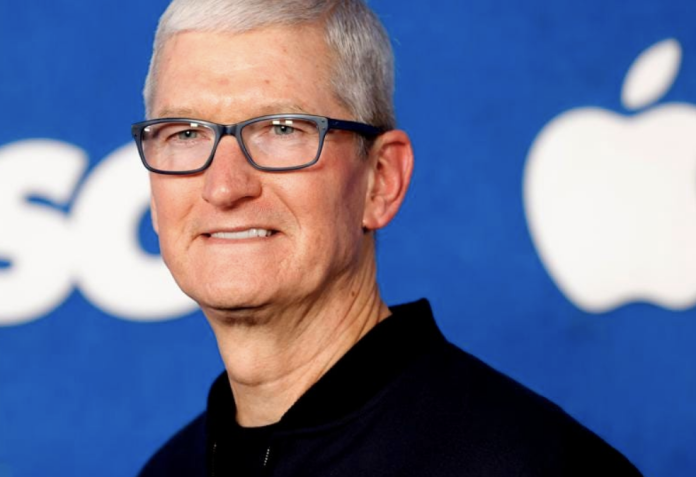If you are an Apple fan, you might be wondering how Tim Cook compares to Steve Jobs. While the former Apple CEO may have been known as an autocrat, Tim Cook is considered an efficient visionary and a trusted delegator. Here are some of the characteristics that distinguish each of these icons.
Tim Cook is an autocratic leader
In the Apple era, from 1997 to 2011, Steve Jobs was a micromanager who micromanaged a broad range of business operations. After Jobs’s death, Tim Cook has reformed Apple’s leadership style and been recognized as the World’s Greatest Leader by Fortune Magazine. He has received widespread praise from employees and has successfully avoided the autocracy and perfectionism that Jobs so famously practiced.
Unlike Steve Jobs, Tim Cook is a visionary and transformational leader who has managed Apple to become one of the world’s most successful companies. While Jobs pushed for innovation as the core tenet of the company, Tim Cook has embraced a democratic style that has led to Apple’s continued success.
Apple was founded as a software company in the late 1970s and has grown to be the world’s most profitable company. In 2020, the company will have total revenues of $274.5 billion. It will be the most valuable company in the world as of January 2021. Tim Cook was appointed CEO of Apple in 2011 and succeeded Steve Jobs, who had led the company for seven years, starting in 1997. His leadership style combines a visionary approach with a meticulous eye for detail.
He is a visionary
Apple CEO Tim Cook succeeded Steve Jobs in August 2011. When a confidant asked Cook if he is a visionary, he replied that he was more detail-oriented and didn’t want to think about Jobs. Jobs died in October 2011 from pancreatic cancer. In the days after his death, obituaries covered the front pages of newspapers and websites. On TV, newscasts aired lengthy segments that praised Jobs.
Apple is a more inclusive company under Cook than under Steve Jobs. Cook’s background at IBM helped him develop deep understanding of marketing, product design, and manufacturing. He is also a great listener and is willing to listen to others’ ideas. He has worked to make Apple more diverse, open, and inclusive.
Apple needed a visionary to guide the company through its evolution from a one-trick pony to a multibillion-dollar corporation. In this regard, Cook is a visionary. While he has not been as successful as Jobs, he has managed to grow as a CEO during the last six years. However, some critics argue that Cook did not make the same impact as Jobs.

He is a trusting delegator
Steve Jobs delegated many of his most important projects to his team, and Tim Cook has done the same. While Steve Jobs spent weeks with his iPhone design team, Cook has chosen to delegate many of these projects to others, which may surprise some. As a result, he has made Apple more diverse and inclusive.
Like Jobs, Cook trusts others and delegates as much as possible. He is a team player and has taken on Warren Buffett’s management style. At Berkshire Hathaway, Buffett delegated many tasks and trusted others’ visions.
Tim Cook has also built his leadership skills under Jobs’ tutelage. He has the necessary experience to make the important decisions for Apple’s future. The succession planning process that Jobs set in motion for the company’s top executives has proven to be a great asset. In addition to his proven leadership style, Cook has also maintained Apple’s overall vision.
While Jobs was an outspoken, boisterous leader, Tim Cook’s quiet demeanor has allowed him to easily convince other executives of his ideas. He takes the time to explore ideas and discuss their benefits and disadvantages. He also encourages employees to voice their opinions without fear or intimidation. The democratization of Apple’s management style has enabled Apple to develop innovative products and a fear-free corporate culture.
He is efficient
In a few short years, Cook was able to cut Apple’s inventory from 30 days to six days. He didn’t do this by cutting costs, though. In fact, during his time at Apple, Cook spent $100 million on air transportation. He even bought freight space on a plane just months before the iMac G3’s debut.
Tim Cook lacks the star power of Steve Jobs, but he is more approachable and has a more relaxed attitude. He welcomes input from developers and lower managers alike. He’s also more involved in the lower management levels and cares about Apple’s future. Steve Jobs was a special and inspiring leader, but Cook is more efficient and effective at leading the company.
Tim Cook studied at IBM, a company known for pioneering the integrated supply chain and deeply integrating product design, marketing, and manufacturing. That knowledge has helped him create an incredibly efficient company. His company is also one of the most profitable in the world, and Apple’s products are among the most popular and profitable of all time.







